
Russia’s Kursk oblast is no stranger to war. In medieval times, the district was overrun by the Mongol horde, and was claimed and ceded down the centuries by Eurasian empires. During World War II, the environs of the city of Kursk became the site of the greatest tank battle in history, as Nazi Germany suffered a grievous strategic defeat at the hands of the bloodied yet unbowed Soviet Union.
This past week, Kursk has been the site of the first major invasion of Russian territory since then. This time, it’s not the Nazi war machine rolling in — no matter what Kremlin propagandists insist — but a bold Ukrainian operation that has humiliated Russian President Vladimir Putin and upended some of the logic of the war between Russia and Ukraine.
Kyiv’s foray into Kursk began Aug. 6. Tanks and other armored vehicles surged into Russia; Ukrainian artillery and drone strikes struck at Russian positions. Six days later, Ukrainian officials said they were in control of some 1,000 square kilometers of Russian territory. Tens of thousands of Russian residents have evacuated amid growing fears that Ukraine would consolidate its presence and press its advantage.
On Tuesday, Ukrainian President Volodymyr Zelensky posted on social media that Ukrainian forces had seized some 74 settlements in Kursk and were treating civilians there humanely. He nodded to reports of hundreds of Russian soldiers who had surrendered to the advancing Ukrainians, describing them as part of the “exchange fund” that would enable the return of myriad Ukrainian soldiers in Russian captivity. Ukrainian officials were guarded about their plans for the region.
“Unlike Russia, Ukraine does not need other people’s property,” Foreign Ministry spokesperson Heorhii Tykhyi told reporters in Kyiv. “Ukraine is not interested in taking the territory of the Kursk region, but we want to protect the lives of our people.”
For the Kremlin, the developments are a stinging blow. Putin launched the full-scale invasion of Ukraine in February 2022 in a fit of neo-imperialist revanchism, dismissing Ukraine’s sovereignty and independent identity and casting the country as part of a greater Russia that would naturally return to the bosom of its compatriots next door. Those delusions were dispelled by Ukraine’s dogged resistance and the surge of Ukrainian nationalism that has accompanied its war effort. And now, rather than having redeemed Russia’s vanished imperium, Putin finds his country’s own vulnerabilities more exposed.
By one estimate, Ukraine has seized more Russian territory in a week than Russia has captured in Ukraine in this whole calendar year. Russian military bloggers speculated over which officials would lose their jobs over the debacle, while furious residents have complained about the lack of coordination and information during evacuations, according to my colleagues. Officials in Moscow cast the incursion as an act of “terrorism” and vowed swift retaliation.
The operation has led Russia’s forces to carry out bombing raids on its own territory — after months of pummeling Ukraine. “The incursion clearly has achieved at least one Ukrainian objective: breaking through the haze of Russian complacency about the war — which has had limited impact on the lives of most ordinary Russians,” my colleagues wrote earlier this week.
“Since last week, Russians, rather than Ukrainians, have taken to social media and blogs to wonder whether the nuclear plant nearest the combat area is safe, to watch videos of their young conscript soldiers taken prisoner and civilians stripped of shelter as the Kursk region disappears behind an active front line,” wrote Anna Nemstova in the Atlantic.
What Ukraine’s end goal in the current campaign may be is not totally clear. The incursion has been a significant morale boost at a time when Kyiv has struggled to break through Russia’s fortifications and make much progress in reclaiming lost territory. It creates a greater buffer zone that diverts, at least temporarily, Russian airstrikes and artillery bombardments away from Ukrainian cities and territory. And it may potentially see Russia pull some of its troops out of Ukraine to fight battles in Kursk and other endangered border regions.
“Russia has relocated some of its units from both Zaporizhzhia and Kherson regions of Ukraine’s south,” Dmytro Lykhoviy, a Ukrainian army spokesman, told Politico on Tuesday.
Given the possibility of Western support for Kyiv waning in the coming months — not least if the U.S. election returns former president Donald Trump to power — the raid into Kursk gives Ukraine a bit more leverage for any future peace talks. “With the growing uncertainty of the political landscape in the West and increased pressure to enter peace negotiations with Russia, Ukraine may seek to establish control over Russian territory, which it will use as a bargaining chip in exchange for land now occupied by Russia,” wrote Mark Temnycky, a nonresident fellow at the Atlantic Council.
Substantive diplomacy is not on the horizon, though. As Russia plots a crushing response, Western commentators point to Ukraine’s Kursk success as proof that Kyiv should be allowed to use more long-range Western weapons to hit targets across the border. Meanwhile, Ukraine’s forces, outmanned and outgunned, are still battling against the odds on other fronts. “I’m glad our boys are having success in Kursk,” a senior Ukrainian officer on the front line in Donetsk region told the Financial Times. “We still have a hot fight here. I hope [Ukrainian military commander Oleksandr] Syrsky remembers this.”
The Kursk incursion is the latest blow to Putin’s prestige since the short-lived 2023 insurrection of Wagner mercenary company chief Yevgeniy Prigozhin, who rampaged his way through the heart of Russia before camping out 100 miles outside Moscow. The mutiny was dispelled — and Prigozhin later died in murky circumstances — but it represented a shock to the system and illustrated the inherent weakness of the Kremlin’s security apparatus.
“Whether Ukrainian forces remain in Russia or pull back, they have demonstrated the fragility of the entire Putin system — not just its intelligence and military capabilities but the viability of top-down dictation,” noted Harvard academic Walter Clemens.
Ukraine may not achieve much more on the Kursk front, but even now, the operation marks a grim inflection point. “In the end, it has become just another flashpoint in a long, drawn-out struggle that has already devastated Ukraine, and is now coming back home to Russia to claim a bloody dividend,” wrote Johns Hopkins scholar Sergey Radchenko. “Putin wanted to beat the living hell out of Ukraine. Well, now, he too has learned that what goes around, comes around.”/The Washington post/

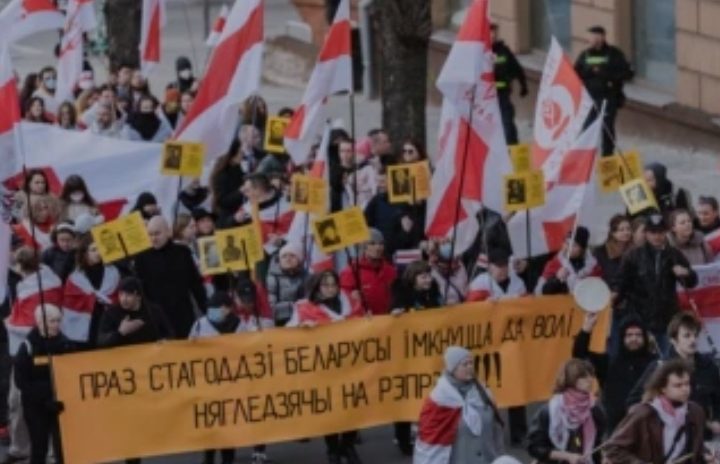 Lithuania Accuses Russia, Belarus Of Plotting Violent Attacks On Belarusian Exiles
Lithuania Accuses Russia, Belarus Of Plotting Violent Attacks On Belarusian Exiles 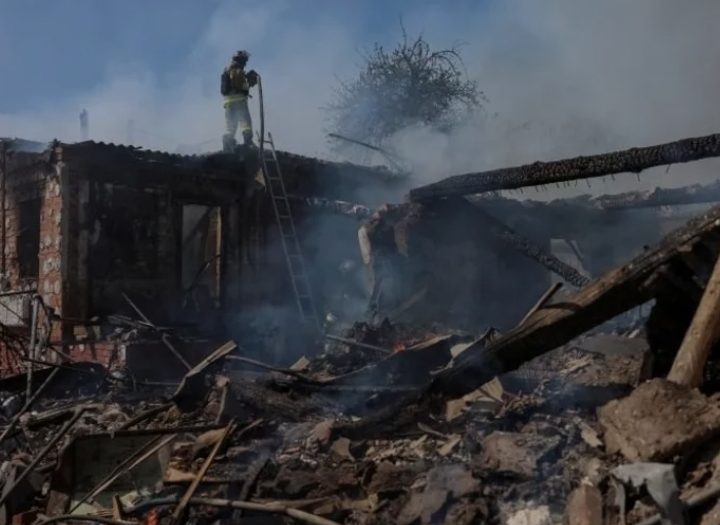 US intensifying bid to end Ukraine war – but chances of success remain unclear
US intensifying bid to end Ukraine war – but chances of success remain unclear 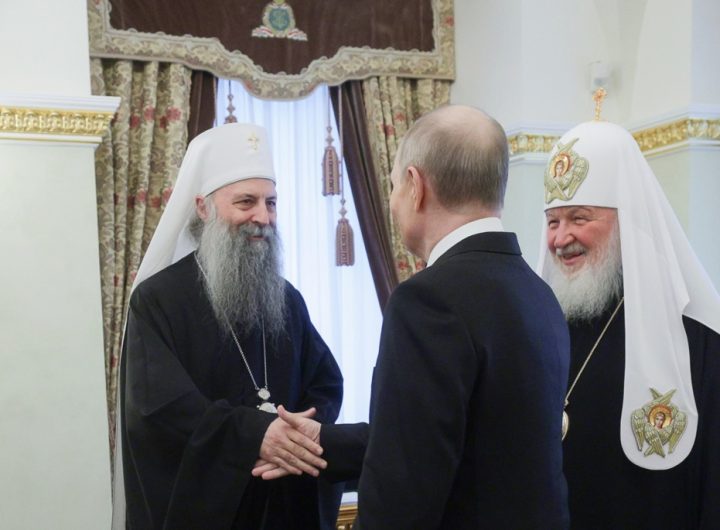 Patriarch Porfirije in front of Putin: Without Russia, No Future for Serbia
Patriarch Porfirije in front of Putin: Without Russia, No Future for Serbia 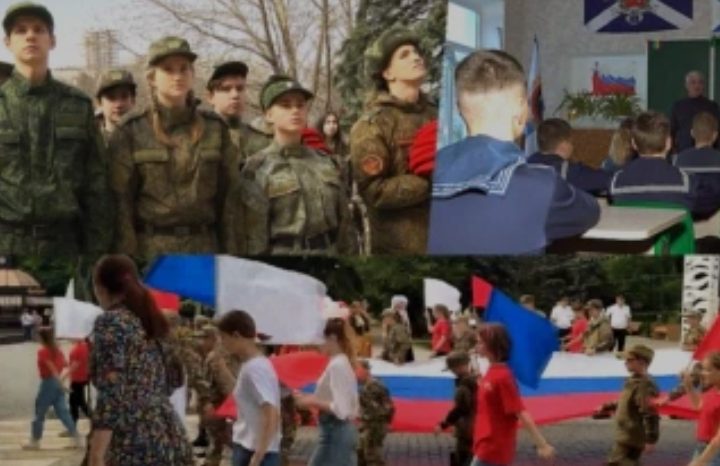 Zelenskyy Demands Russia Return Ukrainian Children In New International Campaign
Zelenskyy Demands Russia Return Ukrainian Children In New International Campaign 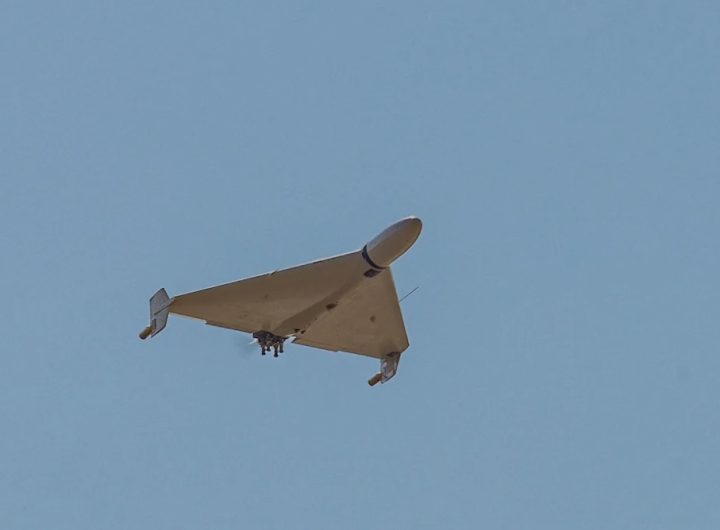 Russian drones batter Ukraine’s Odesa as peace talks come to a crux
Russian drones batter Ukraine’s Odesa as peace talks come to a crux 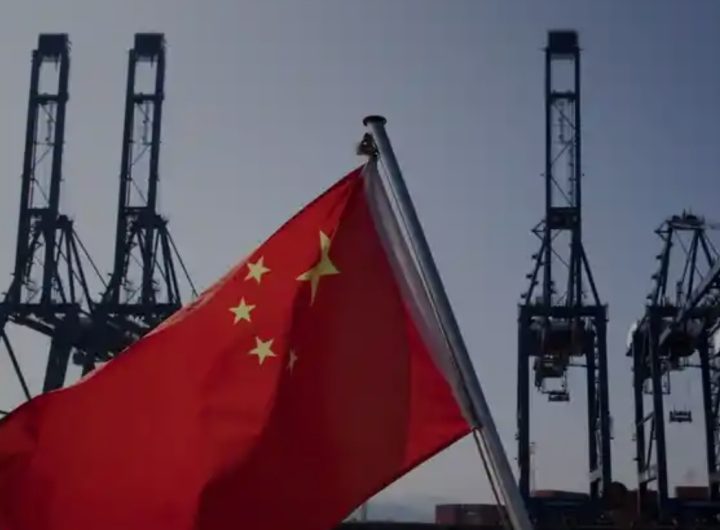 China warns countries against striking trade deals with US
China warns countries against striking trade deals with US